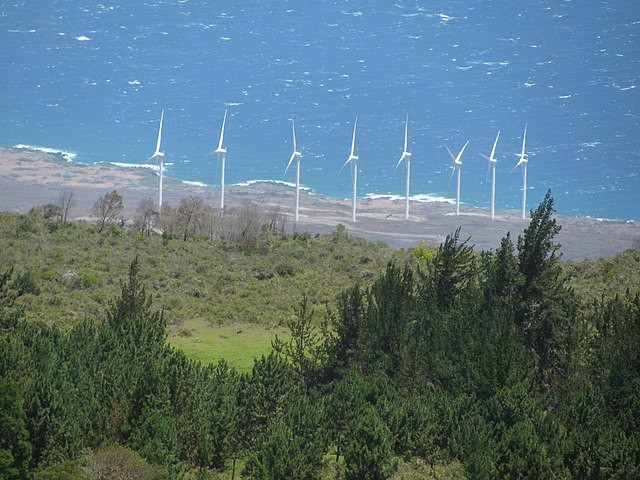In the aftermath of Donald Trump's election victory, shares of climate technology and renewable energy companies took a significant hit as markets braced for potential policy reversals and regulatory rollbacks under his incoming administration. Trump's campaign promises to dismantle existing clean energy projects and shift focus back to fossil fuels sent shockwaves through the industry, leading to a sell-off in key sectors.
On Wednesday, the Invesco Solar ETF dropped 10%, reflecting broader investor anxiety. Individual clean energy stocks were among the hardest hit. Array Technologies fell 22%, SunRun lost 30%, and First Solar saw a 10% decline. Offshore wind power companies Ørsted and Vestas, both of which have been targets of Trump's past criticism, fell roughly 14% on the day. Electric vehicle (EV) startups Rivian and Lucid also faced sell-offs, with their shares declining 8% and 5%, respectively, while charging infrastructure companies like ChargePoint, Blink Charging, and EVgo each fell over 10%.
"Trump's victory automatically creates headline risk for the entire clean tech landscape," noted Raymond James analyst Pavel Molchanov in a pre-market note, a sentiment soon echoed by market movements. Trump's vow to rescind unspent funds allocated under the 2022 climate law and potentially disrupt access to billions in tax incentives for green projects intensified investor concerns.
While fears of outright gutting the Inflation Reduction Act (IRA) may be overstated, given bipartisan investments already in place across red states, the market response highlighted deep concerns about potential regulatory rollbacks. Trump's stance on eliminating electric vehicle mandates and targeting EPA emissions standards further underscored the uncertainty surrounding the industry's future.
The fallout wasn't confined to solar and wind energy alone. Trump's historical aversion to renewable projects and his promises to prioritize fossil fuels sent a chilling signal. During past campaigns, Trump claimed that solar power required vast land areas for effective generation-an assertion countered by the Solar Energy Industries Association, which highlights the relatively small land footprint of current utility-scale solar projects. However, Trump's rhetoric resonated, triggering immediate investor reactions.
"The fear that climate progress will be impeded by the Trump administration is largely overstated," suggested John Tough, managing partner of Energize Capital, who pointed to state-driven climate policies and potential tariff benefits for U.S.-based solar manufacturers. Nonetheless, higher tariffs could also drive up prices, stifling demand in an already strained market.
On the EV front, Tesla stood out by bucking the downward trend, with its shares rising 15% on Wednesday. Analysts attributed this to both Elon Musk's high-profile support of Trump and Tesla's market dominance. "Tesla has the scale and scope that is unmatched in the EV industry, and this dynamic could give Musk and Tesla a clear competitive advantage in a non-EV subsidy environment," noted Dan Ives of Wedbush Securities.
For now, industry analysts believe that while Trump could slow the pace of energy transition, he won't be able to halt it completely. As Priyanka Sachdeva, a senior market analyst at Phillip Nova, stated, "Historically, Trump's policies have been pro-business, which likely supports overall economic growth and increases demand for fuel." Yet any policy shifts or tariffs affecting global supply chains could have significant implications.
Oil markets also reacted strongly to Trump's win, with crude prices slipping amid a stronger U.S. dollar and lower Chinese crude imports. Brent crude futures fell 0.8% to $74.29 a barrel, while U.S. West Texas Intermediate (WTI) dropped by 1% to $70.96. The dollar's strength has historically made oil more expensive for foreign buyers, further pressuring prices.
Saxo Bank analyst Ole Hansen summed up the market sentiment: "Absent any major geopolitical escalation, the short-term outlook leans toward downside risk." However, Trump's potential re-imposition of sanctions on Iranian and Venezuelan oil exports could shift supply dynamics, posing both risks and opportunities for oil markets.






